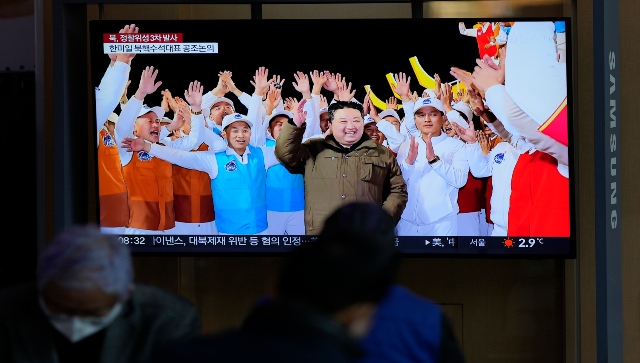South Korea’s officials on Thursday that they have determined that North Korea most likely used Russian assistance to launch a spy satellite into orbit for the first time this week. They also expect to know by early next week whether the satellite is operational. With both Koreas threatening to break a previous reconciliation agreement and acting hostilely along their heavily militarised border, the launch has exacerbated regional tensions. North Korea claimed to have successfully launched its “Malligyong-1” satellite into orbit on Tuesday night, following two unsuccessful launches earlier in the year. The satellite has entered orbit, according to South Korea’s military, but it will take a few more days to certify that it is operating as intended. According to MPs who attended the closed-door briefing, South Korea’s National Intelligence Service informed them on Thursday that the launch was probably successful mostly because of Russian support. The spy agency cited Russian President Vladimir Putin’s earlier mention of a promise to support North Korea’s satellite program. It said it also obtained intelligence that North Korea had sent Russia the design and other data for its new “Chollima-1” rocket used in the two previous failed launches. The intelligence showed that Russia returned its analysis of the North Korean data, lawmaker Yoo Sang-bum, who attended the NIS briefing, told the Associated Press. South Korean Defense Minister Shin Wonsik told a separate parliamentary committee meeting Thursday that Russia appears to have been providing technological assistance for North Korea’s satellite program. The same satellite and rocket were used in all three launches. The two earlier attempts in May and August failed due to technical problems with the rocket. There has been speculation that Russia is providing technological support for North Korea’s satellite and other programs since leader Kim Jong Un traveled to Russia to meet Putin and visit key technology and military sites in September. The Kim-Putin summit was held at Russia’s main space launch center. Asked whether Russia would help North Korea build and launch satellites, Putin told Russian state media at the time that “that’s why we have come here.” “The (North Korean) leader shows keen interest in rocket technology. They’re trying to develop space, too,” Putin said. The U.S., South Korea and Japan accuse North Korea of obtaining high-tech Russian military technologies in return for supplying conventional arms for Russia’s war in Ukraine. Both Russia and North Korea have denied the alleged deal. North Korea said its Malligyong-1 satellite will begin its official mission on Dec. 1. But it said the satellite has already transmitted images of military facilities in the U.S. territory of Guam and that Kim saw them. North Korea hasn’t released the images. Many foreign experts are skeptical about the satellite’s ability to take high-resolution images and whether it is militarily meaningful. After recovering debris from the first failed launch attempt, South Korea’s military said the satellite wasn’t sophisticated enough to perform military reconnaissance. Defense Minister Shin said he worries that Russia could help North Korea produce higher-resolution satellite photos. Shin said South Korean, US and Japanese authorities will be able to determine whether the satellite is functioning normally as early as this weekend or early next week. South Korea, the US and Japan strongly condemned the satellite launch, saying North Korea is using it to improve its missile technology as well as acquire a space-based surveillance system. UN Security Council resolutions ban any satellite launches by North Korea, viewing them as disguised tests of long-range missile technology. North Korea says it has a sovereign right to launch spy satellites to cope with what it calls US-led military threats. It says spy satellites would allow it to better monitor its rivals’ moves and enhance the precision-strike capability of its nuclear-capable missiles. In response to the satellite launch, South Korea said it has partially suspended a 2018 agreement to reduce tensions with North Korea and will resume flying surveillance aircraft and drones along their border. North Korea’s Defense Ministry slammed the South Korean decision on Thursday, saying it will deploy more powerful weapons at the border in a tit-for-tat measure. It said it won’t be bound by the 2018 deal any longer and will reverse all the steps it has taken to ease front-line military tensions under it. South Korea’s military replied that it would “strongly punish” North Korea if it acts provocatively. South Korea’s Joint Chiefs of Staff said North Korea fired a ballistic missile toward the sea on Wednesday, but the launch likely failed. It was North Korea’s first known weapons launch in more than two months. Kim has publicly vowed to acquire spy satellites and other high-tech weapons systems. Since last year, North Korea has test-fired about 100 ballistic missiles in an effort to expand its nuclear arsenal. Experts say Kim ultimately wants to use his enlarged arsenal to wrest greater concessions from the United States if they resume diplomacy. With inputs from agencies
According to MPs who attended the closed-door briefing, South Korea’s National Intelligence Service informed them on Thursday that the launch was probably successful mostly because of Russian support
Advertisement
End of Article


)

)
)
)
)
)
)
)
)



